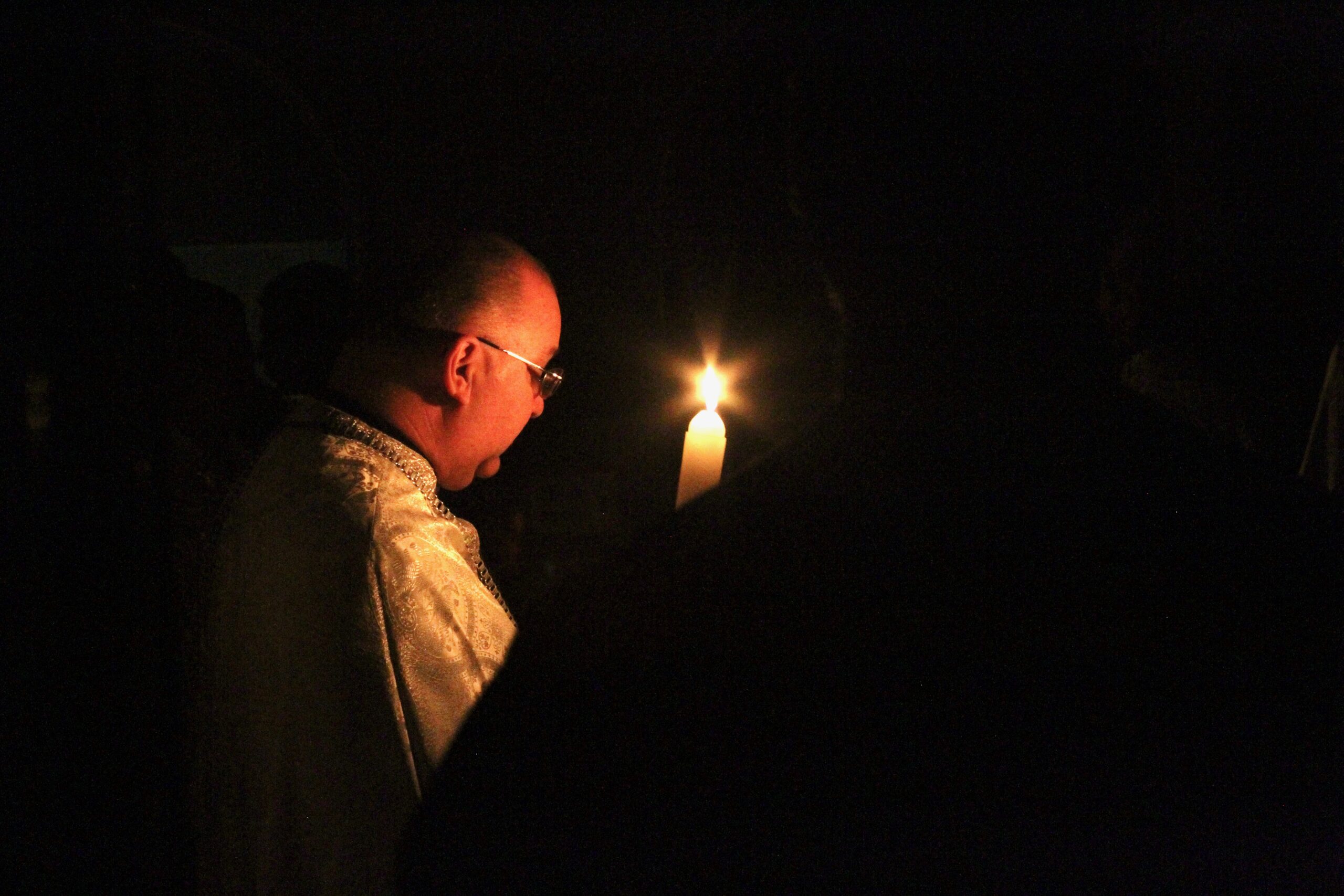Rather, speaking the truth in love, we are to grow up in every way in Him who is the head, into Christ, from whom the whole body, joined and knit together by every joint with which it is supplied, when each part is working properly, makes bodily growth and upbuilds itself in love. Ephesians 4:15-16
We are only three days away from the start of Great Lent. We’ve discussed plans for worship and fasting to help make the Lenten journey worthwhile and successful. While increased worship and fasting are the most common changes that mark Great Lent, it is important to include some other things in our Lenten plan, several other facets of Spiritual growth.
At the center of our Spiritual life is prayer. For some of us, prayer is a joy. For others, it is still a challenge. If you are not in the habit of praying daily, use the beginning of Lent as an opportunity to start again, or start for the first time. Set aside an uninterrupted period of prayer for each morning and another each night.
Scripture reading is part of a good prayer life. If prayer is where we speak to God, then Scripture reading is a way that we listen to God. Reading two chapters of the Gospels each night will allow you to finish reading all four by Pascha. There are 150 Psalms, you could read three a day and finish. However you read the Scriptures, just make sure you put Scripture reading into your Lenten plan. For those who don’t know where they will find the time to inject Bible reading, start by eliminating TV time.
In addition to Scripture reading, consider reading a spiritually uplifting book for Lent. Or attend a Bible study, or a Lenten retreat. Many churches, including the one I serve, have a Lenten lecture series on Wednesday nights after Pre-Sanctified Liturgy. (Other churches have something similar on Friday nights). Spiritually uplifting books are not a substitute for Bible but a nice compliment to it. There are so many authors who have written inspiring books on the Christian life as well as of practical ways to grow in the faith.
Going to confession should be part of our Lenten journey. People should go to confession in times of spiritual crisis, but also at least once a year for a “spiritual check-up.” People go to the doctor when they are sick, but also go once a year for a yearly check-up. This is a good way to look at confession. Confession is not a mere listing of sins but an opportunity to dialogue with your priest or spiritual father, brainstorming ways to change sinful habits.
“Almsgiving” is a word we don’t hear often. Basically, almsgiving is offering “alms” or financial gifts to those less fortunate. A good thing to add to the Lenten plan is to either give money to a charitable cause or volunteer time for a charity.
Everyone has bad habits. Not exercising, drinking too much, wasting time, spending too much time in front of television or social media, egotism, self-pitying, impatience, greed, lust, and gossiping are just a few example of the bad habits many people have. As you make your Lenten plan, consider some bad habits you’d like to eliminate and make a plan to leave them out of your life.
In Orthodoxy, we don’t focus on giving up something for Lent, only to get frustrated and just get it back when Pascha comes. I try to look at life like a marathon. Imagine you have never run and all of sudden desire to run in a marathon. You aren’t just going to get up and run 26 miles. You’ll work up to a mile, then maintain for a little bit, then add a mile, maintain, add a mile, maintain, etc. Many people focus on giving up something for Lent, only to regress and get it back once Lent has ended. I think a better approach is to add something small during Lent to your life and then maintain it throughout your life once Lent has ended. Then next year, add something else small, maintain it, then add, maintain, etc. Over the course of several years, you’ll see a marked growth in your spiritual life.
Having goals is part of every successful life. Appropriate plans are needed to achieve goals. Otherwise goals without plans are just fantasies, they never happen. The same holds true for Lent. Having some goals is part of a successful Lenten journey. Appropriate plans are needed to achieve your goals. Set some goals and make some plans, so that come Monday you are ready to set out on a Lenten journey that will be successful in bringing you closer to Christ.
Praise is due to Thee, O God, in Zion; and to Thee shall vows be performed, O Thou who hearest prayer! To Thee shall all flesh come on account of sins. When our transgressions prevail over us, Thou dost forgive them. Blessed is he whom Thou dost choose and bring near, to dwell in Thy courts! We shall be satisfied with the goodness of Thy house, Thy holy temple! By dread deeds Thou dost answer us with deliverance, O God of our salvation, Who art the hope of all the ends of the earth, and of the farthest seas; Who by Thy strength hast established the mountains, being girded with might; Who does still the roaring of the seas, the roaring of their waves, the tumult of the peoples; so that those who dwell at earth’s farthest bounds are afraid at Thy signs; Thou makest the outgoings of the morning and the evening to shout for joy. Thou visitest the earth and waterest it, Thou greatly enriches it; the river of God is full of water; Thou providest their grain, for so Thou hast prepared it. Thou waterest its furrows abundantly, settling its ridges, softening it with showers, and blessing its growth. Thou crownest the year with Thy bounty; the tracks of Thy chariot drip with fatness. The pastures of the wilderness drip, the hills gird themselves with joy, the meadows clothe themselves with flocks, the valleys deck themselves with grain, they shout and sing together with joy. Psalm 65
Write out a plan of Lenten goals and be ready come Monday morning, to jump in and begin.



